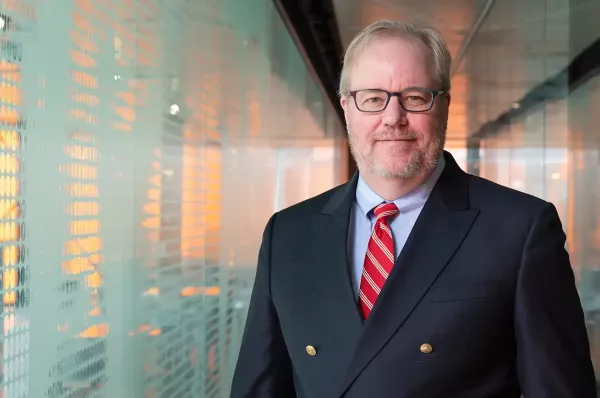Cryptocurrency frequently faces negative headlines related to fraud, terrorist financing, and money laundering, all of which contribute to a substantial trust problem. “Finance depends on trustworthy institutions, and the problem with the cryptocurrency industry is who do you trust,” says Benjamin Van Vliet, Associate Professor of Finance at Illinois Institute of Technology’s Stuart School of Business.

Van Vliet, whose research and teaching focuses on fintech, high-frequency trading, and ethics and strategic innovation in financial markets, suggests a solution in his recent paper, “A Model of Decentralized Oversight for the Digital Asset Industry with an Example Anti-Money Laundering/Know-Your Customer Standard,” published in the Journal of Payments Strategy and Systems. He proposes that the cryptocurrency industry adopt decentralized oversight through globally recognized standards.
A New Approach to Trust
Van Vliet explains that traditional financial institutions establish trust by complying with rules-based regulations within their respective countries. National governments have centralized authority over currency and financial markets. However, cryptocurrency introduces a new paradigm of global, decentralized finance. According to Van Vliet, “Bitcoin is global, and maybe having 150 different countries’ regulatory regimes isn’t the best way of establishing trust.”
Instead of burdening individual investors with the task of understanding and navigating the complexities of all these regulatory structures, Van Vliet argues that decentralized oversight through industry-defined management and ethical standards, applied globally rather than locally, would be more effective and easier to manage.
The ISO Model
Van Vliet notes that a model for decentralized oversight already exists and has been successfully utilized in numerous industries for decades, though not in finance. International Organization for Standardization (ISO) management standards are industry-specific and outline the norms companies must adhere to for certification.
“More than a million companies worldwide adhere to ISO management standards in the chemical, medical, oil, and aerospace industries, as well as others,” Van Vliet says. “They adhere to ISO standards because it facilitates global trade and the establishment of trust across borders. It’s how I can know whether to trust that a supplier I use is not a scammer. If they are ISO certified it gives me some confidence.”
In his paper, Van Vliet not only advocates for creating new management standards for the digital asset industry within the global ISO audit structure, but he also presents a model for verifying compliance with anti-money laundering and know-your-customer processes for decentralized finance, utilizing a public blockchain.
Industry Impact
Van Vliet hopes his paper will stimulate discussion within the finance industry and among government regulators. “The Journal of Payments Strategy and Systems is an industry-oriented journal that is subscribed to by more than 100 central banks around the world,” he says, “so the audience is going to be people in regulatory decision-making roles.”
He emphasizes the urgency of the situation, particularly in combating the use of cryptocurrency to finance terrorism. He concludes, “That’s an urgent problem that needs to be addressed, and here’s a standard that might help address that problem today. So let’s see if we can get that standard up and running and see if it works.”


